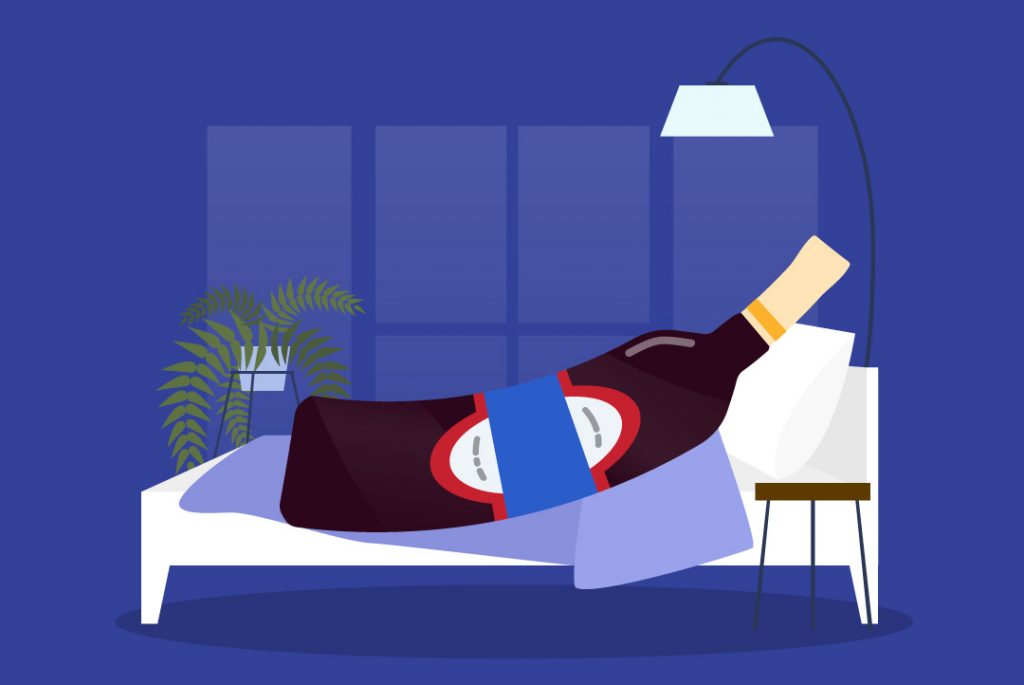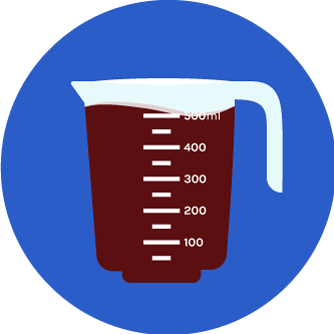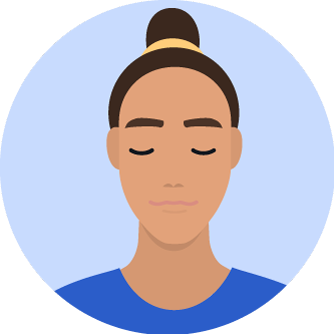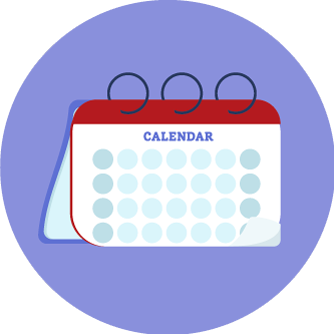EXPLORE MORE
SEPTEMBER 2022
Does alcohol really help you relax?
Many of us assume that drinking helps us relax at the end of a long, hard day. But when more than half of Americans increased their alcohol consumption during COVID-19 lock-downs and 1 in 10 over the age of 12 have Alcohol Use Disorder,* it’s worth looking at whether drinking is doing what we think it does.
Looking for more? Find other articles below

Does drinking really “take the edge off”?
According to a recent study released by the RAND Corporation and supported by the National Institute on Alcohol Abuse and Alcoholism (NIAAA), drinking has soared during the pandemic. For example, heavy drinking for women has increased by 41%. “The magnitude of these increases is striking,” Michael Pollard, lead author of the study and a sociologist at RAND, told ABC television. “People’s depression increases, anxiety increases, [and] alcohol use is often a way to cope with these feelings. But depression and anxiety are also the outcomes of drinking; it’s this feedback loop … that it’s trying to address.”
If you are truly drinking moderately, which the National Institutes of Health defines as one 5-ounce glass of wine or 12-ounce beer for women and two for men, and alcohol doesn’t have a noticeable effect on your overall mood or sleep, you are probably staying clear of alcohol’s anxiety-elevating effects. But if you are worried about your alcohol use, it’s worth looking at how it is affecting you.
Alcohol and the brain
Alcohol affects the brain in two phases. First it increases dopamine levels (the body’s “feel good” chemical). This gives you feelings of well-being, even elation. Second, it calms certain neurotransmitters, which slows down brain functioning. This slowing down is how alcohol acts as a depressant. Once dopamine levels go back to normal, you’re still left with a depressed system, which often leads to another drink to get the dopamine levels back up.
As occasional drinking becomes a daily habit, alcohol has less effect on the receptors that make us feel good. But by then, our brain has learned to crave alcohol when we’re stressed. This shift can increase anxiety, often for the entire day after drinking. And it can lead to wanting a drink the next evening to wind down, causing the entire cycle to start over again. Very often cutting out alcohol can lead to a significant decrease in your overall anxiety.
Alcohol and your sleep
While the sedative effect of alcohol initially might help us fall asleep, as little as one drink too close to bedtime can wreak havoc on both the quality and quantity of your sleep. Alcohol interferes with our sleep stages, especially REM (rapid-eye movement) sleep, the restorative part of our sleep cycle. When alcohol finally leaves your bloodstream, you’re often jolted awake as your nervous system, coming off several hours in a depressed state, tries to regain its balance by lurching into active mode.
Sleep is the ultimate self-care activity. It is the first line of defense against anxiety and depression. Midnight fretting, 3 a.m. wakeups, night sweats, morning headaches and brain fog are all signs that alcohol is impacting your sleep and bringing along the anxiety you are trying to avoid.
Do you have a problem?
We sometimes have an overly simplistic way of thinking about alcohol use — either you’re an alcoholic and your drinking is truly out of control, or there’s no problem at all. But that isn’t accurate. Most people who drink too much are not addicted and wouldn’t experience what we think of as withdrawal if they stopped. They don’t need treatment or intervention. In fact, it’s likely no one around them is worried about their drinking at all. But from a mental health perspective, alcohol is still affecting them negatively.
Alcohol is highly addictive. It causes sleep problems, depression, headaches, stomach issues, infertility and birth defects. Further, it dramatically increases your susceptibility to many types of cancer, is associated with reckless behavior and blackouts, and is responsible for more than 95,000 deaths in America — and 3,000,000 worldwide — each year. Alcohol as an aid to relaxation is a terrible idea. If your drinking is medicinal, it’s time to look for safer, more effective ways to cope.
Ready to rethink your alcohol use?
Here are some steps you can take:

Get real about your drinking.
The next time you relax with alcohol, remember that a 12-ounce can of beer, a shot of spirits and a little over a half cup of wine counts as one drink. Keep track of how many drinks you have each day, and rate your overall anxiety, depression and sleep quality.

Find other ways to relax.
The ritual of ending the day by sitting down with a drink is hard to give up unless we have an enticing alternative. Try swapping in a non-alcoholic drink that you reserve for happy hour; it can often stand in effectively for alcohol. Reading a book, taking a bath, connecting with a loved one or even just going to bed early are all proven anxiety relievers.

Take a break.
There are countless free or low-cost programs online to offer support and guidance to anyone wanting to take an alcohol time-out. Not drinking at all, for at least a month, is the best way to see how alcohol is affecting your life, and to decide whether it’s worth it.
None of the above suggestions replace treatment or a 12-step program. If you experience strong resistance to any of the above steps, it’s worth getting curious about the role of alcohol in your life. While certain people never drink more than the suggested amount, most people who drink consistently will eventually need to re-evaluate the way they are drinking. There shouldn’t be shame or a stigma about wanting to slow down or stop drinking because needing to do so isn’t the exception; it’s the rule.
*National Center for Drug Abuse Statistics. Alcohol Abuse Statistics.
Source: Psychology Today. Does alcohol really help you relax?
For more information on alcohol misuse and support services that can help you or someone in your household find healthier ways to reduce stress, see the resources below.

